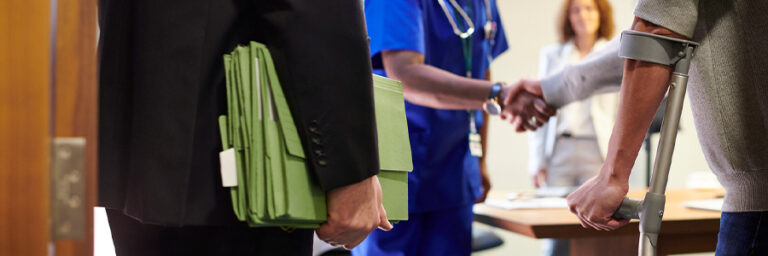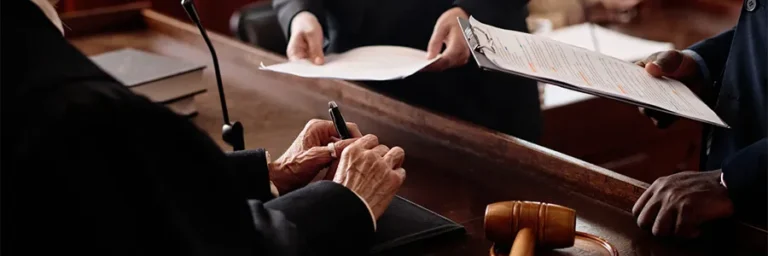At the LaPorte Law Firm our clients primarily live in the Bay Area. The hearing offices in the Bay Area – San Francisco, San Jose, Oakland, and San Rafael – are under the jurisdiction of the Ninth Circuit Court of Appeal. Here is a summary of updated Ninth Circuit case law that deals with issues effecting Social Security Disability Claimants.
Delzer v. Berryhill, 886 F.3d 1282 (9th Cir. 2018).
Appellant mother filed a claim for Social Security survivor benefits based on the earnings of her children’s father. Prior to his death, the deceased father and the mother underwent IVF treatment. The father deposited biological material, some of which was used to create embryos. After his death, the children were conceived with the father’s biological material rather than the embryos that were in existence at the time of the father’s death. The ALJ denied the applications for child’s insurance benefits based on the wage earnings of the deceased father because they failed to submit any papers prior to the decedent’s death that proved he consented to the use of frozen sperm after his death, a requirement of California Probate Code Section 249.5. The ALJ determined that the father had only consented to the use of his embryos after his death.
The Ninth Circuit remained uncertain whether California Probate Code Section 249.5 is satisfied when a writing specifies that some genetic material of the decedent be used. Or, must the genetic material identified in the putative writing include the genetic material actually used to conceive the claimant child? The Ninth Circuit certified these questions and asked the California Supreme Court to answer the questions set forth above. The answer to these questions will determine the outcome of the appeal.
Banes v. Berryhill, 895 F.3d 702 (9th Cir. 2018).
Claimant filed an application for DIB and SSI. At Step Five of the analysis, the ALJ concluded that the claimant was able to perform other work and was therefore not disabled. Neither the ALJ nor the VE stated what skills, if any, the claimant had acquired from his past work and whether those skills were transferable. The ALJ said that the transferability of job skills was not material to the determination of disability because the Medical-Vocational Rules framework supported a finding that the claimant was “not disabled” whether or not the claimant has transferable job skills.
The Ninth Circuit reversed and remanded for further proceedings. The panel determined that the ALJ’s failure to make written findings regarding transferability of skills, required by Social Security Ruling 82-41, prevented the panel from determining whether substantial evidence supported the ALJ’s determination that the claimant was able to perform other work and therefore was not disabled. The ALJ and the VE failed to state what skills, if any, claimant had acquired from his past work and whether those skills were transferrable to the semi-skilled jobs identified by the VE.
Luther v. Berryhill, 891 F.3d 872 (9th Cir. 2018).
Claimant filed an application for DIB and SSI due to her PTSD and degenerative disc disease. Prior to the application, the VA concluded that the claimant was 100% disabled for PTSD, 30% disabled for urinary tract infection, 10% disabled for degenerative disc disease and an overall rating of 100% disabled. At the hearing, the ALJ said that the 100% disability VA had no bearing, “it’s something we consider.” Ultimately, the ALJ determined that the claimant was not disabled.
The Ninth Circuit reversed and remanded for further proceedings because the ALJ erred when she did not give great weight to the VA disability rating and did not provide any persuasive, specific, and valid reasons for rejecting it. The ALJ must consider the VA’s finding in reaching his decision and the ALJ must ordinarily give great weight to a VA determination of disability. The Ninth Circuit determined that the ALJ erred she noted the VA disability rating but did not address how she had considered and weighted the rating or articulate any reasons for rejecting it.













